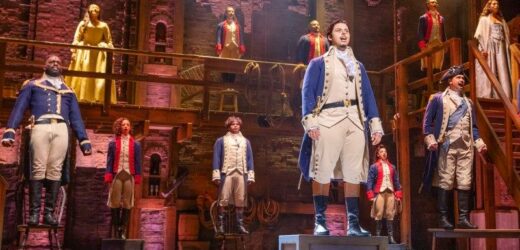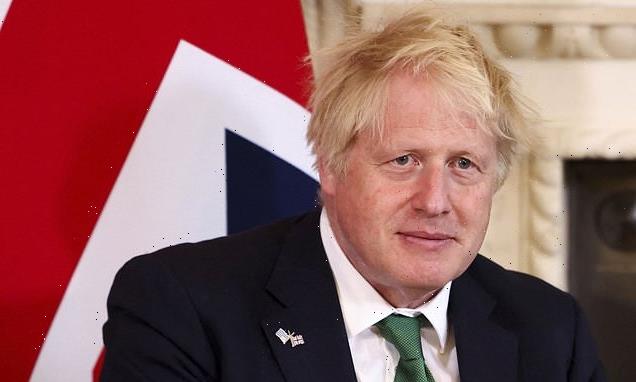Urgent investment in the Australia Council for the Arts and action on a national entertainment insurance scheme to keep shows open while COVID is still wreaking havoc top a list of priorities Australia’s struggling arts sector has named for an incoming Labor government.
“The big challenge we have got at the moment is that shows are still being shut down not because of border restrictions but because the transmission of COVID is still relatively high,” said Evelyn Richardson, chief executive of Live Performance Australia.
Ahead of Saturday’s poll, Labor’s likely incoming arts minister Tony Burke said the party would examine an insurance scheme for live events and develop a national cultural policy.
Tony Burke announcing the party’s arts policy in Melbourne last week.Credit:Luis Enrique Ascui
Arts will also be restored as part of a named government department, but the ALP made no funding commitment to bolster the grant-making Australia Council.
The Greens, who appear likely to hold the balance of power in the Senate, committed to a $1 billion Live Performance Fund, $1 billion for an Australian Stories Fund, and a multidisciplinary Creativity Commission worth $10 million a year.
Richardson said consultation on Labor’s national cultural policy, to set investment priorities, would need to begin as soon as the new arts minister was sworn in if the policy was to be ready as promised by year’s end.
“We want things to move quickly and are prepared to play our part in that,” she said.
Theatre producer Michael Cassel, who brought Hamilton to Australia, said a critical next step in driving economic growth via the live theatre sector was the development of investment incentives. This would support the creative process and encourage investment in the creation and delivery of productions in Australia.
The film production sector had been well-supported by various tax offsets and other initiatives. “Similar targeted support to the live theatre sector would provide a significant uplift in the use of capital to deliver productions in Australia as well as grow employment in the sector and drive economic growth from live entertainment,” Cassel said.
Richardson said the industry still had to face winter and a summer touring season with COVID in circulation. A shortage of technicians, engineers and front-of-house staff also plagued the industry.
Hamilton’s Australian production.Credit:Daniel Boud
Fraser Corfield, artistic director and chief executive of the Australian Theatre for Young People, said without a further injection of funding the Australia Council would cease to function as intended.
“While the Australia Council has its flaws, it is by far the most equitable, accountable and efficient governance body overseeing arts investment in Australia,” he said.
“Without increases to cover the cost of inflation, let alone address the country’s significant levels of ‘unfunded excellence’, the basic tenets underpinning the country’s performing arts industry are breaking down. Leading companies like the Australian Theatre for Young People have lost funding for no other reason than ‘there was not enough money to go around’. This has left the industry at a point of crisis.”
Writer and academic Dr Ben Eltham, from the Fund the Arts campaign, said there was widespread disappointment that Labor hadn’t promised increased funding for the Australia Council going into the election.
“So that’s got to be a priority,” he said. “And it’s not just the Australia Council, you have to look at the entire picture. If Labor doesn’t top funding up we have forward budget cuts impacting the National Library and other cultural institutions that are quite nasty.
“The other really big one is local content quotas for streaming platforms. It’s got to be technology-neutral and across the board.”
The leading peak body representing visual artists, the National Association for the Visual Arts (NAVA), welcomed Labor’s commitment to a national cultural plan. Modest but impactful industrial reform and legislative change would improve the position of artists, its executive director Penelope Benton said.
Labor could begin with the recognition of art as a profession by Centrelink, making art prize winnings tax-exempt, inclusion of visual artists in the Superannuation Guarantee Act, and the restoration of artwork investment for self-managed super.
“NAVA is also calling for a commitment that fees be paid at least at the minimum recommended industry rates by all federal and state/territory government-funded organisations to artists who have been commissioned or have loaned works for exhibition, and that funding levels are adequate to support those payments,” she said.
“This will provide incentive and recognition for artists that their work is valued and that there is a real prospect of their being able to build sustainable lifelong careers.”
A cultural guide to going out and loving your city. Sign up to our Culture Fix newsletter here.
Most Viewed in Culture
From our partners
Source: Read Full Article




